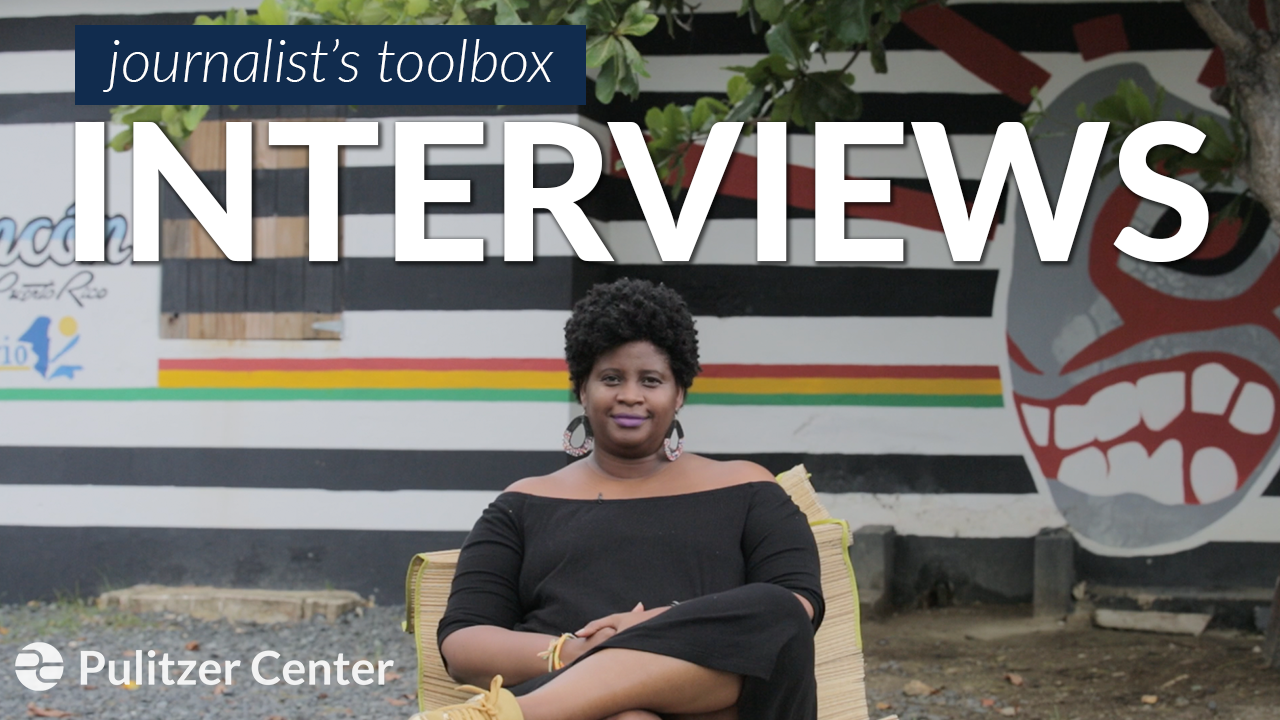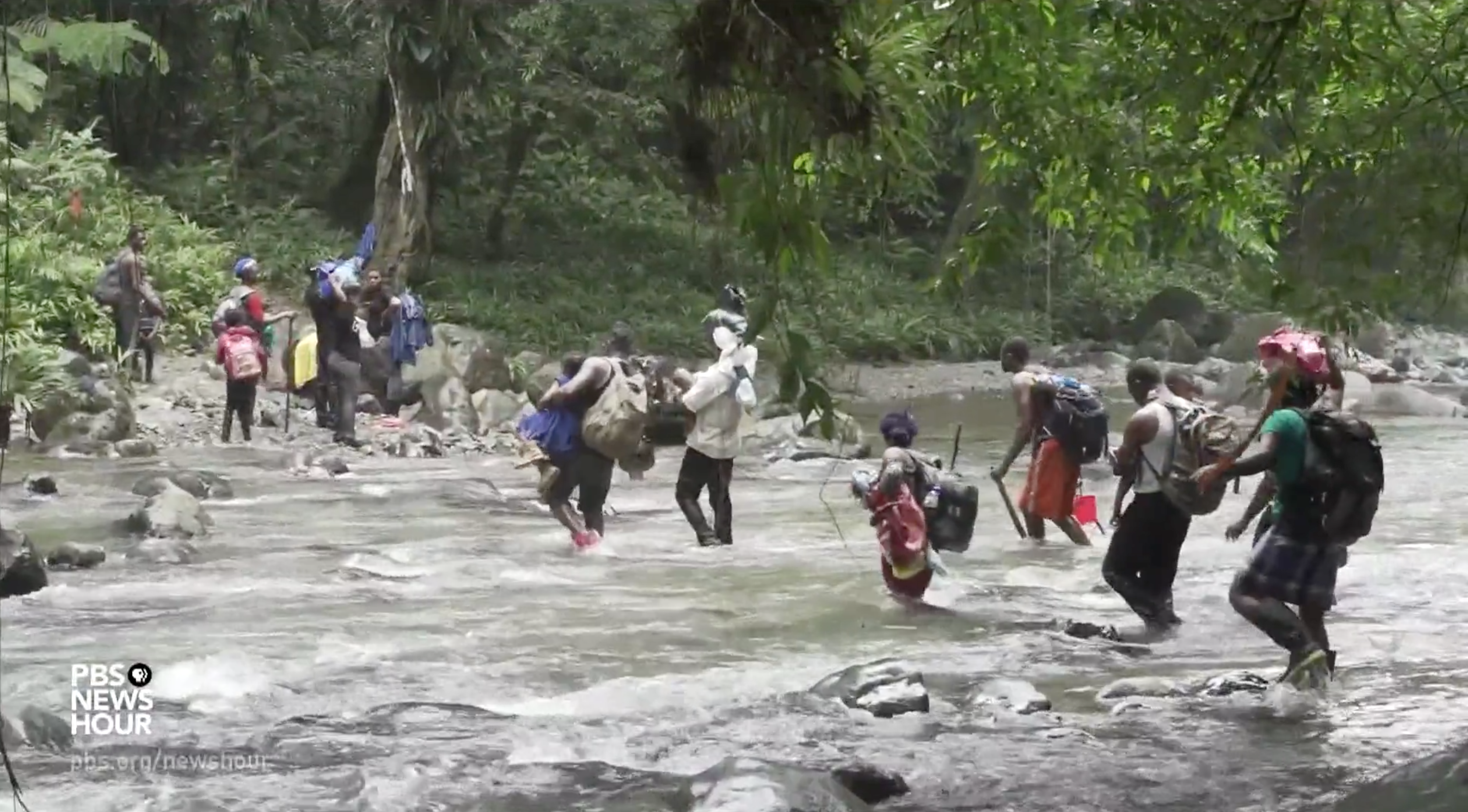This unit was created by Tracy Johnson, a high school visual arts and digital media educator in Chicago, IL, as part of the spring 2021 Pulitzer Center Teacher Fellowship program on Journalism and Justice. It is designed for facilitation across approximately six 60 minute live or virtual class periods.
For more units created by Pulitzer Center Teacher Fellows in this cohort, click here.
Objectives
- Define migration and how and why people migrate.
- Identify how a journalist prepares to write an article.
- Identify how and why a journalist uses investigative/research and interview techniques to gather the proper information to correctly approach the idea of writing an article.
- Use journalism investigative/research and interview skills to find a school or job that you would like to gain entry.
Unit Overview
Migration normally happens out of necessity: work, natural resources, or safety for one’s life. The desire to migrate may be a solution for many but there are barriers that can prohibit the need for safety and prosperity. A large number of students’ families are renting or experiencing homelessness in many parts of the United States. They are entering secondary education ready to get jobs to help their families to gain or just maintain a stable home. Students are also preparing for their small individual migrations from their current schooling location and/or homes to a place of post-secondary education or occupation.
Their coming journeys, while exciting, may have similar motivations of those that migrate from their present homelands. Students can look at people migrating internationally and their stories of struggle and triumph, finding kinship, and hopefully not feeling isolated in their own situations.
Having students learn the techniques that investigative journalists use for interviewing can be learned and repurposed for interviewing for universities and employment. Using journalism skills as a tool to break through postcolonial misperceptions of inadequate candidacy for entry into highly competitive academic, labor, and professional positions encompasses the spirit that migrants hold as they leave their homelands.
Unit Plan
Complete 6-day unit plan including warm-ups, daily worksheets, activities, discussion questions, outline of performance task, and rubric.
Performance Task
After reading news stories published by Pulitzer Center journalists about migration, students will learn the techniques that investigative journalists use for interviewing can be learned and repurposed for interviewing for universities and employment. Ultimately they will be harnessing the power of journalism as a tool for connection and empathy as well as a means of navigating new challenges and opportunities. They will leverage research and interviewing skills to break through postcolonial misperceptions of inadequate candidacy for entry into highly competitive academic, labor, and professional positions encompasses the spirit that migrants hold as they leave their homelands. Students will be producing a list of questions based on your own interests, desires, and research of the organization you intend to interview. Their final product will be a reflective summary of the interview that is intended for you to assess your effectatives with learning the interviewing process.
Student Work
Review the following packet of student work completed by Mr. Johnson’s class which includes examples of each completed worksheet.
Illinois State Standards in Social Science
- Taking Informed Action SS.IS.8.9-12: Use interdisciplinary lenses to analyze the causes and effects of and identify solutions to local, regional, or global concerns.
- SS.IS.9.9-12: Use deliberative processes and apply democratic strategies and procedures to address local, regional, or global concerns and take action in or out of school.
English Common Core
- English Common Core 11/12: Write informative/explanatory texts to examine and convey complex ideas, concepts, and information clearly and accurately through the effective selection, organization, and analysis of content.
- Prepare for and participate effectively in a range of conversations and collaborations with diverse partners, building on others’ ideas and expressing their own clearly and persuasively.
- Present information, findings, and supporting evidence such that listeners can follow the line of reasoning and the organization, development, and style are appropriate to task, purpose, and audience.














